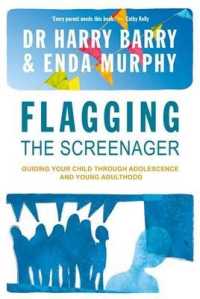Full Description
John Dewey wrote in multiple places that education should be an experience of the content and processes of life itself. Too often, social studies is taught in a way that tells students about real-life, but fails to engage them in the process of life for which Dewey advocated. The core purpose of simulations is to reflect the processes, events, and phenomena expressed in a variety of real-life domains. They engage students in these reflections of real life meaningfully, as active agents who have the power to make decisions that impact the direction of events and that lead to both intended and unintended consequences. Because of the nature of simulations, students who participate in them are able to build their capacities to think in complex and critical ways.
Today, despite the growing evidence that simulations have an important role to play in the teaching of social studies, they remain an underutilized and undervalued approach to the discipline. One of the key obstacles to their widespread adoption is the limited availability of training resources available to social studies teachers. Teachers need support to develop a new vision of social studies teaching and learning coupled with practical guidance necessary to implement simulations effectively. This volume provides teachers with both. When teachers are able to weave simulations effectively into the fabric of social studies teaching and learning, they help to promote social studies experiences that are both powerful and purposeful. They offer students an experience of the discipline that is, indeed, More Like Life Itself.
Contents
Foreword; Jack Zevin.
Introduction; Cory Wright-Maley.
Part I. Designing Simulations.
Chapter 1. Thinking Through Simulation Design: Toward the Mediation of Choice Architectures; Cory Wright-Maley.
Chapter 2. Behind the Curtain: An Epistemic Design Process for Democratic Media Education Simulations; Jeremy Stoddard, Zachari Swiecki, and David Williamson Shaffer.
Chapter 3. Interpersonal and Curricular Dimensions of Simulations: Lessons from a Sophomore Civics Classroom; Brian Girard.
Part II. Implementing Simulations.
Chapter 4. Beyond Facts and Fun: The Need for Purposeful Simulations; Hilary Dack, Stephanie van Hover, and David Hicks.
Chapter 5. Two Paths to Successful Implementation of Simulations in the Social Studies Classroom; Cory Wright-Maley.
Chapter 6. Fostering Simulation Teaching Cultures and Capacities through Professional Learning Communities; Daniel T. Bordwell and Robb Virgin.
Part III. Leveraging Student Engagement.
Chapter 7. Making Players out of Haters: Learning to Love the Social Studies; Christopher D. Moore.
Chapter 8. Super-Seniors as Superpowers: Developing Understanding Through Immersion in Simulated Worlds; Esther Bizzarro and David Gerwin.
Part IV. Teaching and Learning with Simulations.
Chapter 9. From Design to Deed: A Guide to Simulating Government and Politics on the AP Platform; Walter C. Parker and Jane C. Lo.
Chapter 10. Simulations as Tools for Teaching Historical Agency: A Case Study in Finland; Jukka Rantala.
Chapter 11. Harnessing the Monsoon Winds: Promoting and Constraining Imagination in Historical Simulations; Jeffery D. Nokes.
Chapter 12. Simulating Economic Activity in the Classroom; Cheryl A. Ayers.
Chapter 13. Exploring Cross-Cultural Responsiveness and Critical Consciousness in Social Studies Education with the Barnga Simulation; Nancy P. Gallavan and Angela Webster.
Chapter 14. Promoting Global Perspectives in Students: The GlobalEd Simulation; Kimberly A. Lawless and Scott W. Brown.
Contributors.








